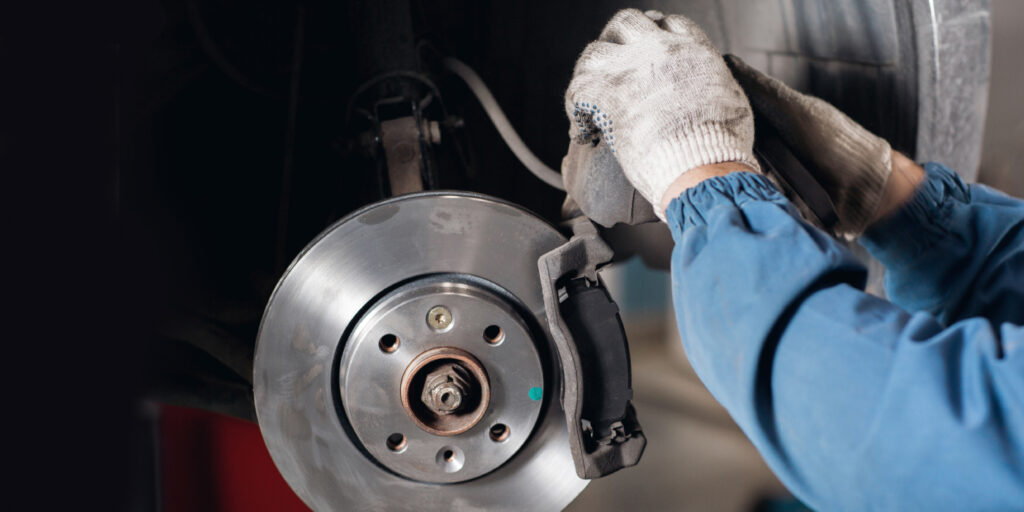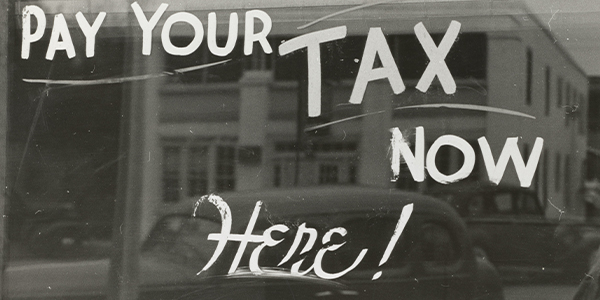In the second of a two-part series, we delve deep into the process of selling a business by interviewing Art Blumenthal, nationwide automotive aftermarket business broker, who provides business valuations, exit planning and buying and selling adviser services. Part one of the executive interview appeared in the November/December issue of Shop Owner.
What affects the selling price?

Many business owners would like to receive an “all cash” offer, especially if they’re retiring and choosing a lifestyle that demands a complete financial and legal separation from their business. Fortunately, I have relationships with many buyers who have the financial resources to make all-cash deals and close the transaction in a relatively short period of time. As a general rule, however, buyers who are in the unique position to make an all-cash offer without a contingency for third-party financing will strive for a discount in the selling price.
If a business is priced right and profitable, a good broker should be able to get it “pre-qualified” through a national bank with an SBA guaranty, including supplemental funds for the buyer’s working capital. The financing pre-qualification gives your business a decisive edge in advertising the business, as buyers will recognize that their equity contribution will be leveraged into the ability to purchase a larger and profitable business.
The market is very good right now for securing 75-85% financing for a business acquisition. A broker with solid connections with a national bank and the knowledge of how to get it approved, processed and closed is an invaluable resource for helping a seller achieve his objectives of “cashing out” at the settlement table and avoiding risky seller financing.
A second critical factor is the quality of the information provided to a prospective buyer. The value of the assets and cash flow generated by the business must be provable and verifiable. A professional business broker will be able to assist the business owner in arriving at these values.
The third most important factor that affects the sale price of a business is whether there is competition among prospective buyers for the business. Competition creates higher selling prices. When a business owner asks for more than the Fair Market Value for their business, or does not offer reasonable terms, there will be few, if any, buyers interested in acquiring the business. On the other hand, when a business is priced realistically and with proper terms, multiple buyers are likely to pursue acquiring the business. A buyer who knows there are other buyers competing for the business will be motivated to offer the price being asked to ensure he does not lose the business to another buyer’s better offer.

What does a seller need to do to help sell the business?
The first thing you need to do is offer the business at a realistic price and with reasonable terms. You need to provide as much information as possible to the broker so a professional marketing package, including a business profile, can be prepared. The quality of the business profile will greatly enhance the “saleability” of a business. For each business that I represent, a 30-50 page “Confidential Business Review” is prepared, which contains the financial, operational and historical information about the business. Informed buyers make better offers. Other things a seller can do are:
• Keep your foot on the gas to maximize sales and profitability.
• Keep the business clean and organized (on paper and in person), so potential buyers will like what they see.
• Liquidate or set aside obsolete inventory and unneeded equipment before you place the business on the market.
• Notify your broker of any material changes in your business.
• Forward monthly financial statements to the broker as soon as they are completed.
• Avoid direct price negotiations with the buyer. Have confidence that your broker will get you the highest possible price.
• Understand that the buyer may be lacking in automotive experience and self-confidence. Avoid telling the buyer that you have been the key to the success of the business because the buyer needs to think that he will be capable of growing the business after the sale.
How long will it take to sell the business?
Due to the confidential nature of a business sale, it typically takes longer to sell than a house or commercial real estate does. A business broker can advertise your business while maintaining the confidentiality of your business name and specific location. The last thing you want is a big “For Sale” sign placed on the building.
On average, most businesses are sold within four to 12 months. Because I specialize in representing automotive aftermarket businesses, I’ll immediately notify the candidates in my buyer database who might be interested in your business. I represent a number of multi-location automotive enterprises that have identified target markets for expansion.
Many of these large buyers can proceed quickly and do not require seller or third-party financing. I consistently search out new potential buyers and many are approaching me looking for business opportunities. The next one may be a perfect candidate to purchase your business.
What fees do you charge to sell an automotive aftermarket business?
I charge a “Success Fee” for selling your business, which is a percentage of the sales price, typically in the neighborhood of 10% to 12%, depending on the value of the business. When real estate is also involved in the sale transaction, the standard 6% selling commission is applied. The details and terms are specified in the Listing Agreement. The Success Fee percentage varies based upon the size of the deal and there is a minimum fee on smaller transactions. While many brokers require an upfront retainer fee to list a business, I’m success driven and, therefore, I do not require any upfront fees for clients who make a commitment to give me the opportunity to sell their business at a fair market price.
How long is the seller expected to train the new buyer?
The level of training is dependent on the complexity of your business and the level of expertise of the buyer. Usually, two weeks of full-time training is appropriate, with follow-up telephone consultation, as needed, for a few months. Of course, if you’ll be leasing a building or offering seller financing, it’s in your best interest to ensure that the buyer is well trained in your business.
What is your step-by-step process for selling an automotive aftermarket business?
1. Consultation — At the initial conference, I’ll ask you to confidentially share with me your goals and motivation for selling. I’ll review with you a proposed detailed process for the sale of your business. We’ll get to know each other and hopefully reach a comfort level for proceeding further. There is no charge or obligation for the initial consultation.

2. Obtaining the Facts — Using an efficient and organized process, which I’ve developed and tailored to best suit automotive aftermarket businesses, I’ll gather information concerning company history, financial status and other pertinent data for the evaluation of your business.
3. Valuation — I’ll prepare an analysis to determine the range of the “most likely selling price” of your business, which will be used to justify the price to all prospective buyers or lenders. Determining the most likely selling price for an automotive aftermarket industry-specific business is a valuable skill that I offer my clients. In many cases, the “most likely selling price” I determine is actually higher than the selling price the seller initially had in mind.
4. Listing Agreement — With your complete understanding of the process, you and I will execute a Listing Agreement. This document allows me to proceed with the marketing and sale of your business and details the mutual understanding of the representation.
5. Business Profile — To market your business, I’ll prepare a discreet summary profile of business information. This information is used to create awareness and interest in your business to potential buyers, without disclosing your company name or specific location. A much more detailed “Confidential Business Review” is sent to seriously interested buyers, once they sign a Confidentiality Agreement and Buyer Profile and have been financially qualified. Included in the Confidential Business Review is a more complete presentation of the history of your company, description of facilities, competition, description of products/services offered, your reason for selling, employee information, financial data, your firm’s strengths and a justification of the purchase price.
6. Marketing Strategy and Plan — I’ll develop and execute a customized marketing plan to sell your business as quickly as possible and for the maximum selling price. I’ll immediately publicize your business to the network of potential buyers that I’ve created over the past 30 years, as well as buyers who are on record as looking for a business in your area and nationally.
Your business will be advertised in multiple Internet listing services and other appropriate trade publications and media. I’ll keep in frequent contact with you, advising you of all responses regarding buyer inquiries, calls, interviews and potential site visits. If you wish, we can schedule a weekly conference call to review progress.
7. Buyer Qualification — I’ll carefully screen all prospective buyers before they have access to any information about your company. All buyers must complete an information profile, including their background, experience and financial capabilities. The buyer will also be required to sign a Confidentiality Agreement prior to receiving any confidential information.
8. Offer to Purchase — A seriously interested and qualified buyer will be scheduled to tour your business. This is your chance to show the prospective buyer your facilities and discuss the strengths of your enterprise. To the extent that you might be offering partial seller financing or leasing your building, this is also the time for you to ask questions and gauge the buyer’s capability to run your business successfully.
This is your opportunity to speak with the prospective buyer directly. I’ll then provide guidance to the buyer and work with him/her to prepare a written Offer to Purchase, which details the terms of the transaction.
9. Negotiation — I’ll review the Offer to Purchase with you, and together we will formulate a negotiation strategy, which I’ll then orchestrate between you and the buyer. I will offer recommendations to reach a win/win deal and provide guidance as needed in areas such as creative financing, non-compete agreements, employment contracts, etc.
10. Financing — I’ll introduce the buyer to multiple lending sources and assist with the application and underwriting process. Securing optimal bank/SBA financing is key to “cashing out” at closing with minimal or no seller financing.
11. Closing — Once you’ve accepted the buyer’s offer, a tentative closing date is set. I’ll work with all parties involved to ensure that all tasks are accomplished smoothly for the transition to new ownership. During a defined time period, the buyer will perform a due-diligence process to validate the business information that has been disclosed. Any hitches in the process will be addressed promptly and professionally.
How would you summarize your role in selling an automotive aftermarket business?
The decision to sell your business is one of the most important decisions of your life. Turning your operation into cash is a complex matter involving a number of variables, many of them unique to your business and to the aftermarket industry. Additionally, you’re facing an uncertain economy, unbridled competition and sophisticated buyers.
Establishing a relationship with a professional business sale intermediary with decades of experience in the automotive aftermarket and hundreds of buyer contacts increases the likelihood that your business will sell in less time and for a higher purchase price.
If you’re considering selling your auto service business, I can help you maximize the value by creating a specific marketing strategy and package customized for your business. My business intermediary services include providing a valuation of the most likely selling price, finding and screening buyer prospects, assisting with the negotiations and coordinating the closing.
I provide competent and experienced professional guidance every step of the way. Having bought and sold several of my own Midas franchise stores, as well as the Aftersoft VAST POS software business, I understand that the process can be intimidating. Selling a business in today’s economy is especially challenging, but there are tools and techniques to make sure you get the best possible price for your business — a just reward for the years of sweat equity that you’ve invested in developing products/services, a customer base, a reputation and profits, all of which contribute to building a valuable automotive business.
With my nationwide affiliation in IBBA (International Business Brokers Association), my business offerings are regularly presented to numerous potential buyers looking to relocate or expand into your area.
The ideal outcome will be a “win/win” for both the seller and buyer. I’m happy to provide references for the sellers that I’ve had the privilege of representing over the years. Many of these sellers have been featured in a series of case studies published in Shop Owner.
Most importantly, I will listen to you in order to determine your goals and how I may help you achieve them. I’ll guide you through all of the complex steps required to sell your business.
Leveraging more than 30 years of experience as both an aftermarket business owner and aftermarket technology executive, Art Blumenthal LLC provides business intermediary and advisory services to both buyers and sellers of industry businesses of all sizes. Art is a member of IBBA (International Business Brokers Association, Inc.). For more information, or to initiate a no-obligation confidential consultation, visit www.art-blumenthal.com.














